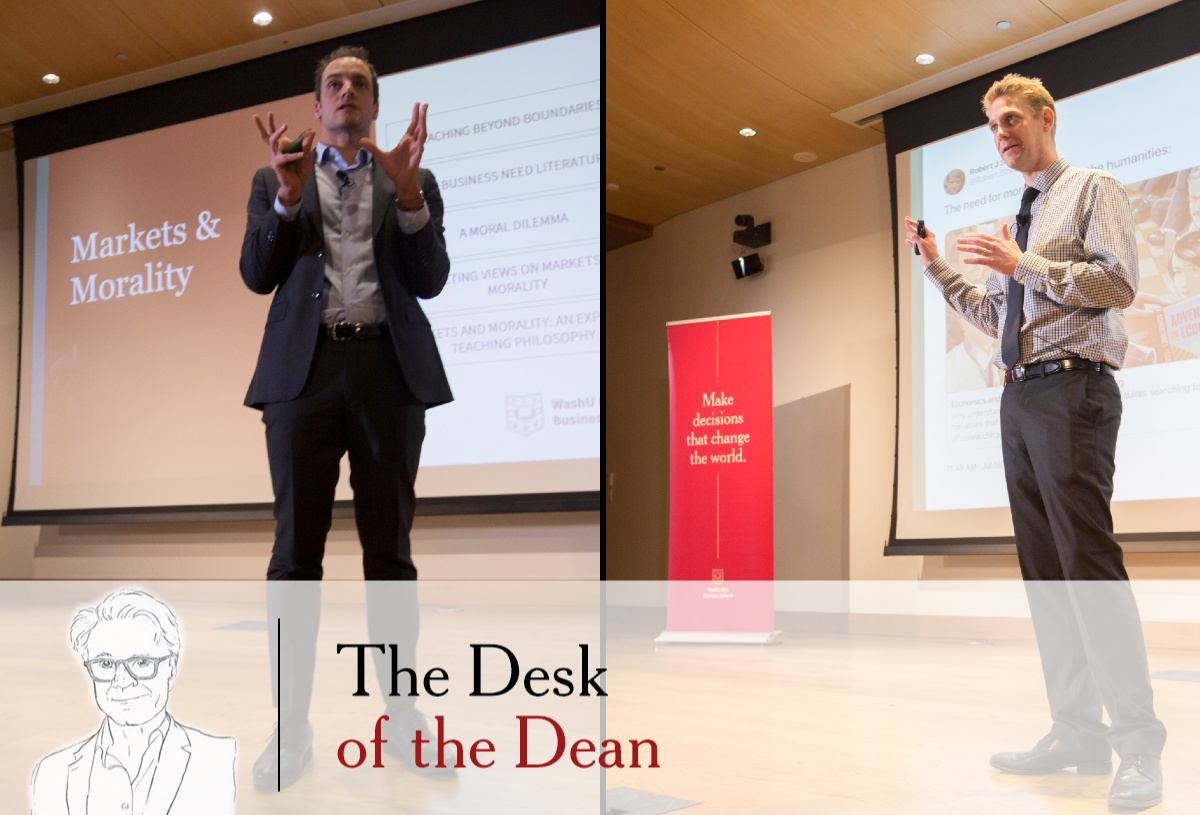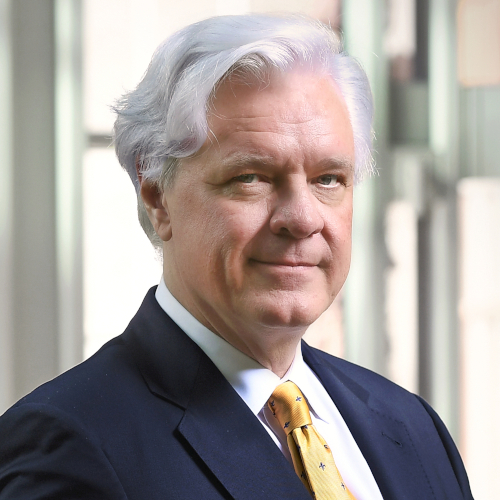Morality, markets and the power of narrative: The importance of cross-disciplinary education
- March 4, 2020
- By Mark Taylor
- 2 minute read

A few months back, Abram Van Engen unfolded a story before an audience of mostly business school people. The story involved a latter-day businessman stewing over the decision to sell his failing paint mills.
From the Emerson Auditorium stage, Van Engen unveiled the story bit by bit, polling the audience with each newly revealed wrinkle. Should the businessman sell the failing mills? If the buyer knows the mills are failing, is the decision justified? What if the buyer offers the businessman a kick-back? Would you sell?
In his telling of The Rise of Silas Lapham, William Dean Howells’ 1884 novel, Van Engen whipsawed the audience from one decision to the next. In so doing, the English professor from across the WashU campus not only illustrated the way a shifting narrative changes one’s perspective. More broadly, he and his partner in the presentation, Olin’s Peter Boumgarden, illustrated the importance of cross-disciplinary proficiency for business success in today’s world.
“What can be learned at the intersection of business and literature?” Boumgarden asked the audience. The Olin professor of practice in strategy and organizations continued: “What can I learn about markets by exploring literature and arts?”
Indeed, the 2008 global financial crisis reinforced my thinking on the subject. Working as a fund manager, navigating the crisis for my clients, brought into relief the notion that individuals aren’t motivated solely by hard data, facts and figures, dollars and cents. If we knew economics had much to learn from sociology and psychology, we knew it more keenly after that. Hence the rise of behavioural finance among researchers.
Boumgarden spoke expansively about a WashU programme specifically designed to foster this sort of cross-disciplinary approach to education, Beyond Boundaries—the program that drove Boumgarden and Van Engen to collaborate on their Markets and Morality course.
Oftentimes we live in our own little bubbles. We need some thinking about the moral complexity of markets to understand what’s happening in the world today.
Peter Boumgarden
Real-world problems don’t come neatly packaged. We must tear down academic siloes to solve the toughest problems, moving from the highly qualitative to the highly quantitative, using our skills of persuasion, backing our viewpoints with hard-core analysis.
“Brands and businesses have long understood that stories push us one way or another,” Van Engen told the audience at the pair’s Century Club presentation in mid-November.
“If there is one thing literature offers us, and there are many things, it’s a slightly different perspective,” Van Engen said. “Narratives give us something beyond an argument or an opinion. The more narratives we come across, the more they reform the narratives we have already come across.”
Pictured above: Peter Boumgarden and Abram Van Engen at their November 2019 Century Club presentation.
Media inquiries
For assistance with media inquiries and to find faculty experts, please contact Washington University Marketing & Communications.
Monday–Friday, 8:30 to 5 p.m.
Sara Savat
Senior News Director, Business and Social Sciences
